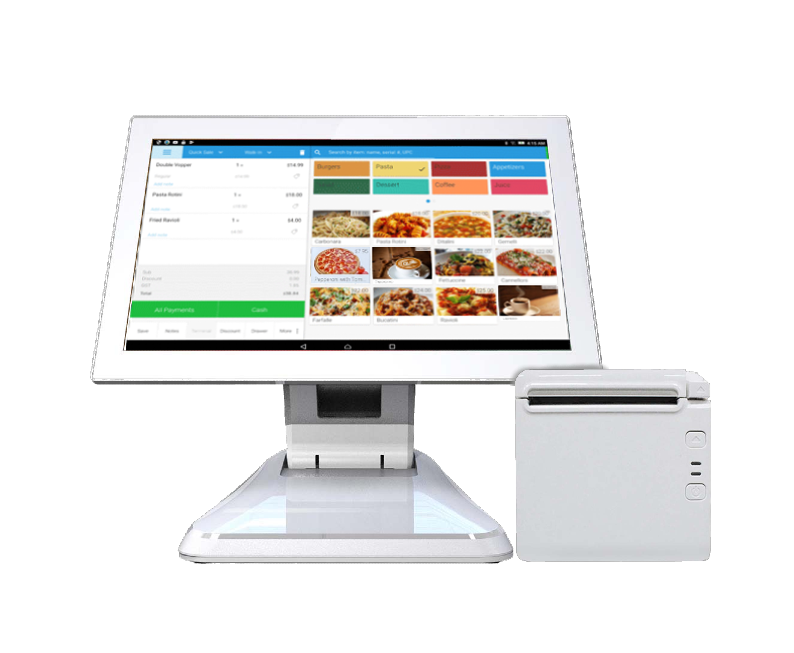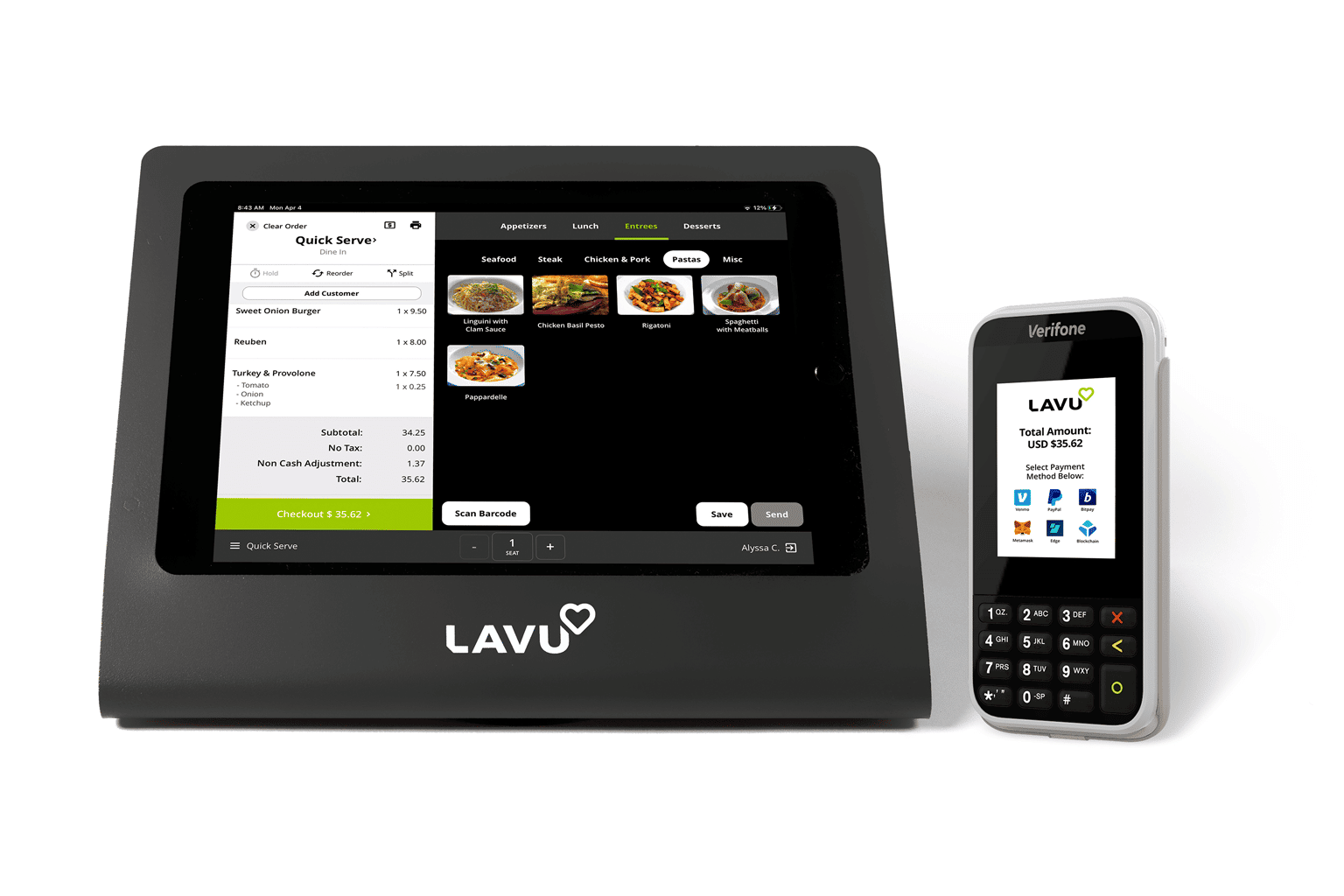Maximize margins using Restaurant POS Software in decision-making workflows
Comprehending the Importance of POS Software Program in Modern Retail Operations
In today's retail landscape, the function of POS software has actually come to be significantly significant. These systems have changed from standard cash registers to multifaceted tools that improve various facets of procedures. They not just improve transactions but additionally supply insights that can form service techniques. Recognizing exactly how these systems impact customer experience and supply administration is necessary for any kind of seller looking for to continue to be affordable. The implications of these advancements necessitate additional expedition.
The Development of POS Software Application: From Deal Processing to Comprehensive Solutions
As retail settings progressed, so also did the performance of Factor of Sale (POS) software application, which shifted from fundamental purchase processing systems to advanced, all-inclusive services. Originally, POS systems mainly took care of sales transactions, taking care of sales register and printing receipts. With advancements in innovation, these systems began integrating stock management, customer relationship administration, and sales analytics. Merchants identified the demand for real-time information and smooth procedures, prompting the growth of cloud-based POS services that enabled remote gain access to and improved scalability.Additionally, the rise of mobile business demanded POS systems to adjust, enabling transactions via smartphones and tablet computers. This transformation not just structured operations yet also enhanced reporting capacities, allowing sellers to make informed choices based on detailed information insights. Modern-day POS software program has come to be indispensable to retail method, serving as a multifunctional device that supports numerous operational facets past plain purchase processing.
Enhancing Consumer Experience With Advanced POS Includes
While lots of retailers concentrate on operational performance, advanced POS attributes increasingly focus on improving the client experience. Modern POS systems currently offer functionalities such as mobile repayment alternatives, personalized promotions, and client commitment programs, which promote a more appealing purchasing setting. By streamlining the checkout procedure, these systems reduce wait times, enabling clients to complete deals promptly and efficiently.Additionally, incorporated client connection management (CRM) functions allow stores to track acquiring behaviors and preferences, promoting tailored advertising efforts. This customization not just develops client loyalty but likewise improves general satisfaction.Moreover, advanced analytics offered by POS systems can assist retailers comprehend client trends and choices, permitting them to make enlightened choices regarding product offerings and store formats. Inevitably, the focus on consumer experience through sophisticated POS features not just meets modern customer expectations however likewise drives repeat organization and increases profits for stores.
Streamlining Supply Monitoring With Integrated POS Solutions
Integrated POS systems play a crucial duty in simplifying supply monitoring by automating processes that traditionally needed considerable manual initiative (Restaurant POS Software). These systems make it possible for merchants to track stock levels in real time, removing discrepancies that commonly occur from hand-operated supply matters. With functions such as barcode scanning and automated stock replenishment signals, services can maintain excellent inventory degrees without overstocking or stockouts.Furthermore, incorporated POS systems assist in accurate forecasting by analyzing historic sales information, allowing stores to make educated investing in decisions. This predictive capacity assists companies adapt to altering consumer demands and seasonal patterns much more effectively.Additionally, the centralization of supply information throughout multiple sales networks boosts exposure, allowing sellers to manage their supply more effectively. Inevitably, the combination of POS systems right into stock monitoring streamlines procedures, reduces human error, and adds to raised profitability
Real-Time Sales Tracking and Reporting for Informed Decision-Making
Precise supply monitoring prepares for effective sales tracking and reporting. Real-time sales tracking enables merchants to monitor sales efficiency as it happens, providing instant insights into client buying patterns and patterns. This ability permits companies to react quickly to variations in need, maximizing stock levels and lessening overstock or stockouts.Moreover, incorporated POS systems facilitate the generation of comprehensive reports, highlighting key metrics such as sales by classification, time durations, and private products. Such reporting abilities equip sellers to make data-driven choices, recognizing successful approaches and locations requiring enhancement.

The Role of POS Software Program in Consumer Partnership Monitoring
POS software program plays an important duty in boosting customer relationship monitoring by allowing stores to apply individualized advertising strategies. By assessing customer information, services can tailor interactions and promos to meet specific preferences. In addition, these systems help with the development of improved commitment programs that motivate repeat service and enhance consumer engagement.
Personalized Advertising And Marketing Approaches
As merchants significantly seek to enhance consumer loyalty and interaction, personalized advertising and marketing techniques have become a necessary component of efficient consumer relationship administration. POS software program plays a crucial duty in this procedure by gathering and assessing customer data, allowing retailers to tailor advertising initiatives to specific choices and purchasing habits. By leveraging understandings from acquisition backgrounds, stores can create targeted promotions and personalized interactions that resonate with customers, cultivating a deeper connection. In addition, the assimilation of POS software with customer relationship management systems permits smooth tracking of customer communications, ensuring that advertising techniques remain timely and relevant. This data-driven strategy not just boosts client contentment but additionally motivates and drives sales repeat company, solidifying the merchant's market setting.
Enhanced Commitment Programs
Retailers are progressively acknowledging the importance of loyalty programs in promoting long-term consumer connections and improving overall engagement. POS software application plays a crucial duty in the advancement and administration of these programs, allowing stores to track customer actions, acquisitions, and preferences effectively. By leveraging information analytics, services can create tailored benefits and rewards that reverberate with private consumers, thereby boosting participation in loyalty programs. Furthermore, POS systems make it possible for smooth combination with mobile applications and digital systems, assisting in very easy accessibility to promos and benefits. This not only boosts consumer complete satisfaction yet likewise drives repeat organization. Eventually, POS software application encourages retailers to cultivate deeper links with their clients, changing occasional customers into loyal customers via targeted and purposeful interaction techniques.
Integrating POS Systems With Shopping Operating Systems for Omnichannel Success
To achieve real omnichannel success, seamless integration between point-of-sale (POS) systems and e-commerce systems is important. This combination enables stores to link their supply monitoring, guaranteeing that product availability is properly mirrored throughout both online and physical stores. Consumers benefit from a cohesive shopping experience, where they can quickly change between networks without experiencing discrepancies.Furthermore, incorporated systems assist in real-time data sharing, allowing services to examine consumer actions and preferences better. This data-driven technique enables retailers to tailor advertising and marketing approaches and maximize supply levels, sites inevitably boosting client contentment and driving sales.Additionally, the ability to process transactions throughout platforms simplifies procedures, minimizing the risk of errors and boosting Home Page general efficiency. As retailers significantly adopt omnichannel approaches, the assimilation of POS systems with shopping platforms continues to be an essential variable in achieving lasting growth and keeping competitive benefit in the vibrant retail landscape.

Future Patterns in POS Innovation and Their Effect On Retail Procedures
As retail operations develop, future patterns in POS innovation are established to improve the landscape substantially. The surge of cloud-based options, technologies in mobile POS systems, and the advantages of AI assimilation are amongst the crucial growths anticipated to enhance efficiency and customer experience. These improvements guarantee to improve processes and promote a much more dynamic retail environment.
Cloud-Based Solutions Rise
With the enhancing reliance on modern technology, cloud-based POS options are transforming retail procedures by offering boosted versatility and scalability. These systems allow sellers to access real-time information from anywhere, promoting much better decision-making and customer solution. By leveraging cloud infrastructure, businesses can minimize upfront prices related to software and hardware installments while guaranteeing seamless updates and upkeep. Furthermore, cloud-based solutions support multi-location monitoring, enabling stores to integrate stock and sales throughout numerous outlets effortlessly. This flexibility is crucial in today's busy market, where consumer preferences shift swiftly. As more merchants embrace these solutions, they can anticipate improved functional performance and a much more receptive strategy to market demands, eventually boosting client contentment and loyalty.
Mobile POS Innovations
The development of retail innovation remains to shape operations, specifically with the increase of this link mobile POS technologies. These systems enable retailers to process deals anywhere within the shop, enhancing consumer involvement and streamlining check out processes. Mobile POS services boost stock monitoring by allowing instant accessibility to supply degrees, aiding team aid customers much more effectively. Additionally, they help with customized purchasing experiences with incorporated customer information and loyalty programs. As mobile tools come to be increasingly advanced, retailers are taking on features such as digital receipts and contactless repayments, additionally maximizing the acquiring trip. The shift in the direction of mobile POS not only improves functional efficiency yet also straightens with the expanding consumer choice for benefit, guaranteeing that sellers remain affordable in a quickly progressing market.
AI Combination Benefits
AI combination stands for a transformative leap in POS technology, providing retailers a myriad of advantages that boost operational effectiveness and consumer experience. By leveraging artificial intelligence algorithms, merchants can examine buying patterns and maximize supply administration, minimizing waste and stockouts. Furthermore, AI-powered analytics provide tailored advertising recommendations, enabling targeted promotions that boost consumer interaction and commitment (Restaurant POS Software). Moreover, chatbots and virtual assistants simplify client service, allowing for quicker resolution of inquiries and enhancing the overall purchasing experience. Anticipating analytics can also forecast need fads, enabling smarter staffing and source allowance. Ultimately, the assimilation of AI in POS systems encourages stores to make data-driven choices, fostering an one-upmanship in an ever-evolving retail landscape
Frequently Asked Inquiries
What Are the Expenses Linked With Executing POS Software?
The prices connected with carrying out POS software program can include software application licensing charges, equipment expenditures, setup fees, training costs, and recurring maintenance. Each variable adds to the total investment required for a successful implementation.
Exactly How Can Little Retailers Gain From POS Systems?

What Equipment Is Required for a POS System?
A regular POS system calls for essential equipment components, including a touchscreen screen, cash money drawer, barcode scanner, invoice printer, and payment terminal. These elements interact to promote effective purchase processing and supply administration for sellers.
Can POS Software Be Personalized for Particular Retail Requirements?
POS software application can indeed be personalized to satisfy particular retail requirements. This flexibility permits services to customize features, interfaces, and coverage tools, improving functional performance and supplying a more customized experience for both staff and consumers.
How Protected Is Consumer Information in POS Equipments?
The protection of consumer information in POS systems differs widely. Several systems implement security, safe and secure accessibility controls, and regular updates, however vulnerabilities can still exist, necessitating ongoing watchfulness and proactive actions from stores to safeguard sensitive info. By improving the check out procedure, these systems decrease wait times, allowing consumers to complete transactions swiftly and efficiently.Additionally, incorporated client relationship administration (CRM) attributes enable stores to track acquiring actions and preferences, facilitating customized advertising and marketing initiatives. As merchants significantly seek to boost client commitment and interaction, customized marketing strategies have actually arised as an essential element of reliable client connection administration. In addition, the assimilation of POS software application with consumer relationship monitoring systems allows for seamless tracking of customer interactions, guaranteeing that advertising and marketing approaches stay timely and appropriate. Consumers profit from a natural purchasing experience, where they can quickly switch between networks without coming across discrepancies.Furthermore, incorporated systems help with real-time data sharing, enabling services to analyze customer actions and preferences more effectively. Small sellers can benefit from POS systems through improved purchase efficiency, structured stock monitoring, and boosted customer insights.